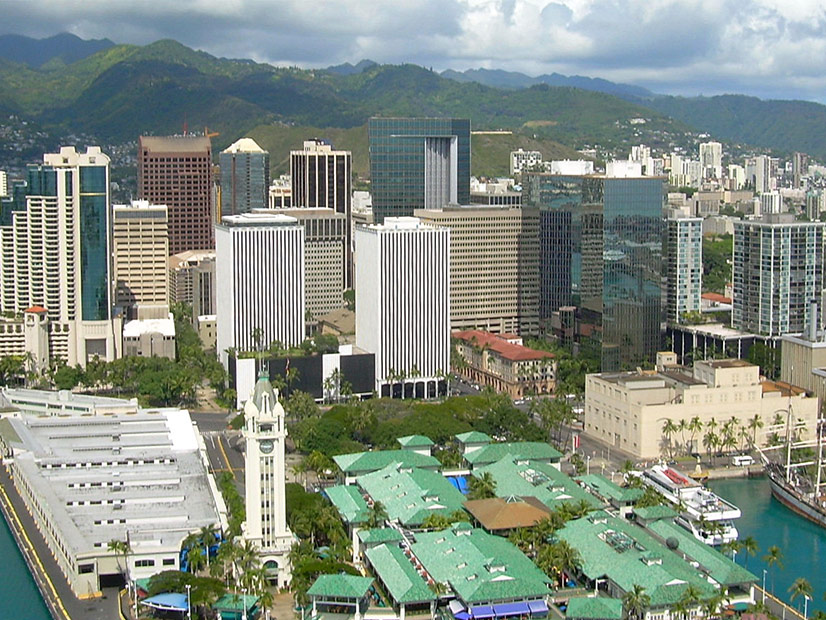The U.S. Department of Energy announced Tuesday that it will work with 11 remote and island communities to strengthen energy infrastructure, reduce outage risks and “improve their future energy and economic outlook.”
The program, called the Energy Transitions Initiative Partnership Project (ETIPP), will bring together DOE experts and national energy labs “to advance local clean energy solutions and improve resilience” in the communities.
“Residents of remote and island communities face energy disruptions, natural disasters and climate change impacts, and pay some of the nation’s highest energy costs,” Secretary of Energy Jennifer Granholm said in a statement. “These 11 communities — working hand-in-hand with DOE’s network of experts — will implement resilient and secure clean energy solutions.”
The ETIPP is also intended to help the Biden administration reach its goal of 100% carbon-free electricity in the U.S. by 2035, Granholm said.
The program will include projects in Dillingham, Ouzinkie, Sitka and Wainwright in Alaska; Honolulu and Kauai in Hawaii; Eastport and Isleboro in Maine; and Oracoke Island and Nags Head in North Carolina.
“As the threats of climate change grow more severe, it is essential that communities across the country make investments in clean, resilient infrastructure,” Maine Sens. Susan Collins (R) and Angus King (I) said in a statement. “This is especially true for coastal Maine towns, which have both high risks associated with climate change and an immense amount of untapped natural resources at their disposal.”
ETIPP will provide “resources and technical support” to the communities, helping them identify the best course of action and creating concrete infrastructure plans. DOE says the program “empowers remote, island and islanded communities to proactively identify and implement strategic, holistic solutions tailored to their needs.”
To aid in the effort, ETIPP will partner with Lawrence Berkeley National Laboratory, National Renewable Energy Laboratory (NREL), Pacific Northwest National Laboratory and Sandia National Laboratories. The program is supported by the DOE’s offices of Solar Energy Technologies, Water Power Technologies and Electricity.
In Hawaii, ETIPP will cooperate with the state and the Hawaii Natural Energy Institute to bolster infrastructure and implement renewable energy to both reduce greenhouse gas emissions and make the energy grid more resilient against climate change. It will work with Honolulu and Kauai to create projects spanning 12 to 18 months.
For Honolulu, the goal is to “harden their electrical infrastructure from the threat of severe weather [by looking] to develop a hybrid microgrid opportunity map that identifies the best opportunities for this technology to support resilience.” The Kauai effort will “explore alternative and autonomous mobility options for its residents and tourists to move away from fossil-fuel powered single occupancy vehicles and toward a modern, clean transportation system.”
The program drew praise from both of Hawaii’s senators.
“These projects address two of the most important steps in achieving our goal to become carbon negative by 2045 —clean transportation and grid improvements,” Sen. Brian Schatz (D) said.
“The Energy Transitions Initiative is focused on embracing local knowledge and helping community organizations use federal expertise and assistance to find solutions to the unique energy needs of each island community,” Sen. Mazie Hirono (D) said.
This is not the first time Hawaii has received federal help for improving its energy infrastructure. Last July, NREL trained Hawaii’s Public Utilities Commission in ways to deal with the aggressive advancement of renewable integration because of the state’s goal of achieving 100% renewable energy by 2045, which is now being pressured even further by the Biden administration’s push to reach that level nationwide by 2035.




